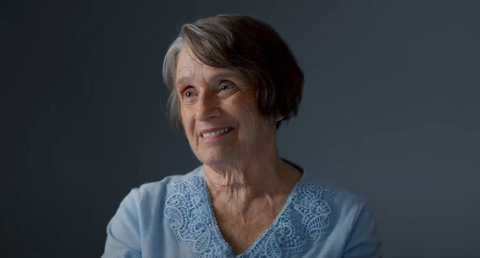Former HVAC Mechanic, Mesothelioma Survivor Shares His Story

Written by Travis Rodgers | Edited by Walter Pacheco | Last Update: 10/24/2024 | 4 Min Read
Joey Barna was diagnosed with pleural mesothelioma in 2018. He believes the disease was a result of his decade-long asbestos exposure during his career in the HVAC industry as well as other jobs that may have exposed him to asbestos.
The Massachusetts native worked in heating, ventilation and air conditioning between 1981 and 1991. HVAC mechanics are considered at risk of asbestos exposure because workers may handle a variety of asbestos-containing products as part of their job.
HVAC mechanics who’ve worked in structures built before 1980, when asbestos was often used as insulation, are at a higher risk of asbestos exposure and mesothelioma. Older HVAC parts containing asbestos become brittle with age and can release the carcinogenic fibers into the air if damaged or disturbed.
Joey’s Asbestos Exposure in HVAC, Boilers
Joey remembered his possible exposure to asbestos when he worked with sheet metal and old boilers, which were known to expose workers to asbestos.
“In 1981, I graduated and got a job at Northeast Sheet Metal in Lawrence, Massachusetts, and at that time during the ‘80s, they were renovating a lot of old mills into condominiums. They would get in there and gut them and sandblast them,” Joey explained to The Mesothelioma Center at Asbestos.com. “There were just a lot of old buildings that I worked in. I also worked on old boilers, which were encased in asbestos. At that time, asbestos was considered a state-of-the-art insulator. It was fireproof.”
Following his HVAC career, Joey renovated old pipes insulated with asbestos. After decades of work, Joey retired because he could no longer perform the same level of physical work following his pleurectomy and decortication surgery in 2018.
“I have this grand staircase in the house, and sometimes, I have to stop halfway up and catch my breath. I get winded quickly,” Joey said. Despite the surgery from six years ago, Joey is keeping up with light exercise and healthier diet, despite some challenges.
Taking up Walking, Healthy Eating
Following his mesothelioma diagnosis and surgery, Joey says he tries to keep in shape by exercising as much as possible, but there are some forms of exercise he’s avoiding to play it safe.
“I do a lot of walking. Bicycling not as much as I used to. I’m afraid to fall down, but I used to rollerblade, but then after I got diagnosed, I don’t want to fall and puncture anything after the surgery,” Joey shared.
He says his diet hasn’t changed much after his diagnosis, but his biggest difficulty is gaining weight. For some mesothelioma patients, gaining weight is a challenge because of the mesothelioma cancer and its treatments. Symptoms of mesothelioma can make it difficult to eat well or comfortably, leading to unintentional weight loss.
For patients undergoing treatment, it’s important to eat the right foods because not getting the proper nutrients can make treatment more difficult and less effective as well as delaying recovery.
“I have a great appetite, but for some reason I cannot put on weight,” Joey said. “I love to eat. I’ve even tried eating at midnight: One of the worst times to eat when you would normally gain weight. But I just can’t put weight on.”
Dietitians and nutritionists recommend that mesothelioma patients follow these steps to manage weight loss and ingest the right nutrients:
- Eat often
- Snack frequently
- Skip empty calories
- Focus on protein
- Eat breakfast and dinner
Joey says he’s focused on eating healthier and will make improvements to his diet following another surgery scheduled to remove tumors from his liver and repair a hernia.
“I feel like I’m back to normal now. During chemo, I could barely eat anything,” Joey said. “But now, I’m trying to eat healthy. I’m trying to eat fruit, but I have been cheating a little bit with the sugar. After my next surgery, I’ll be a good boy again.”






